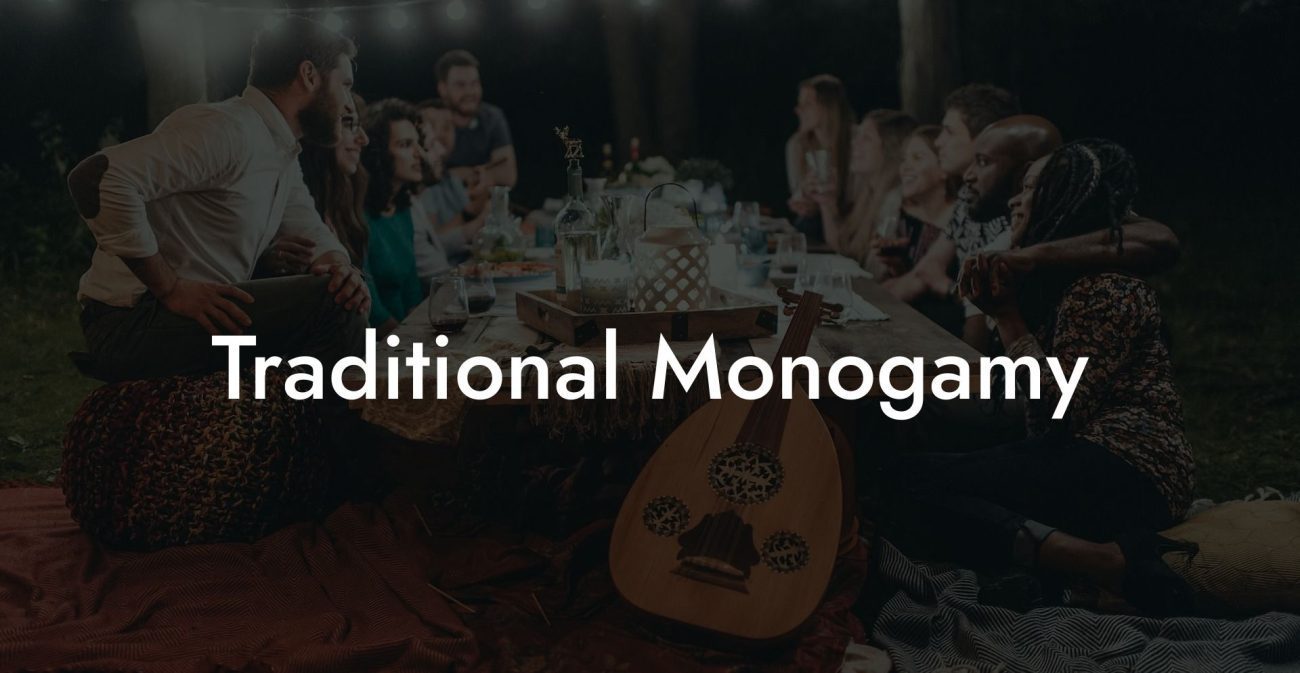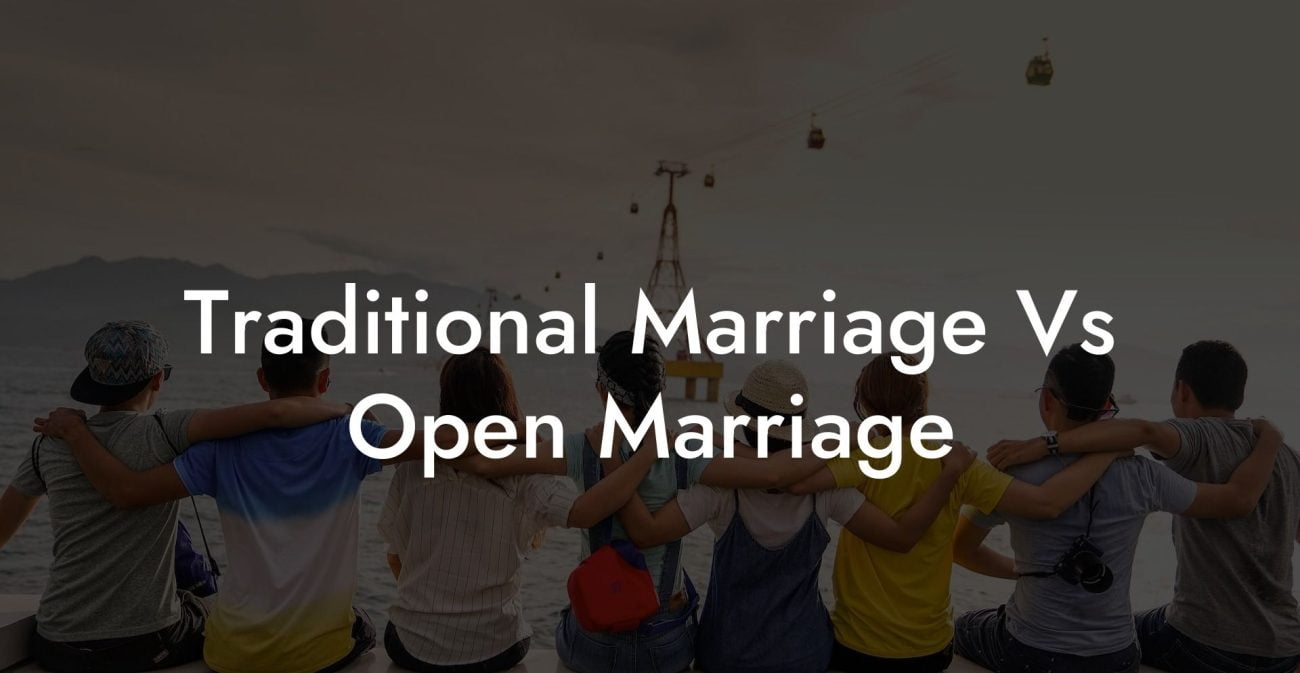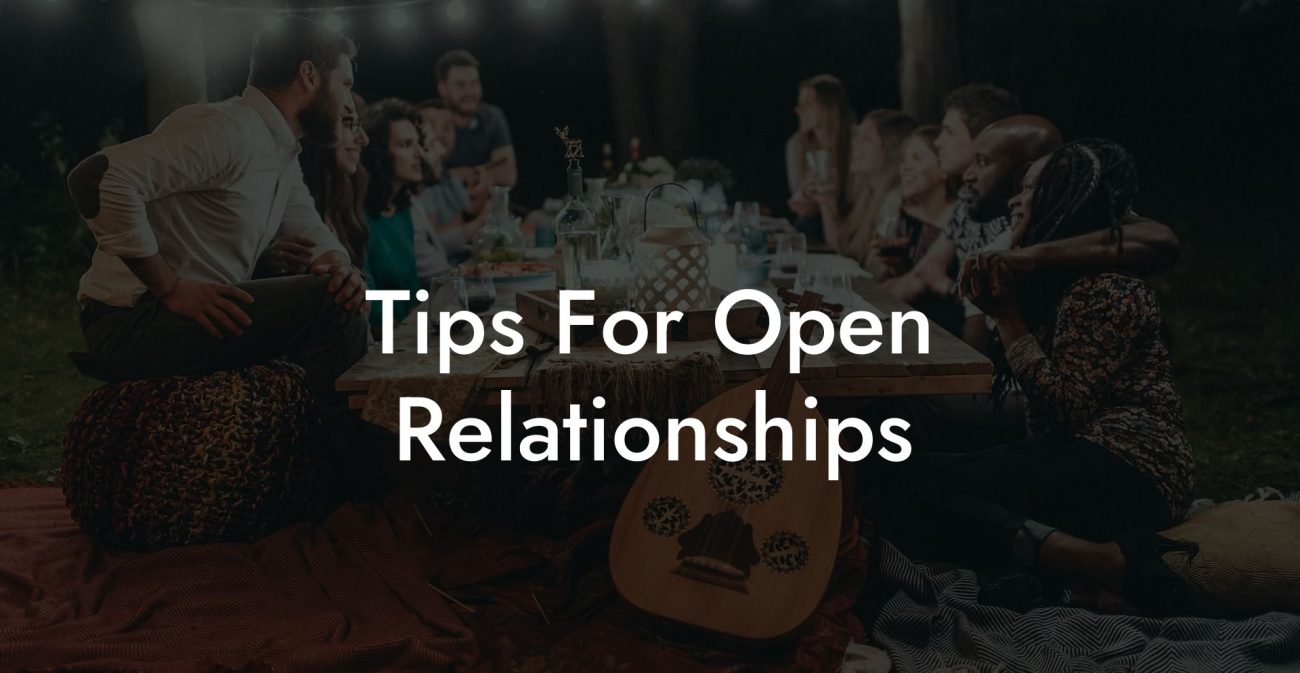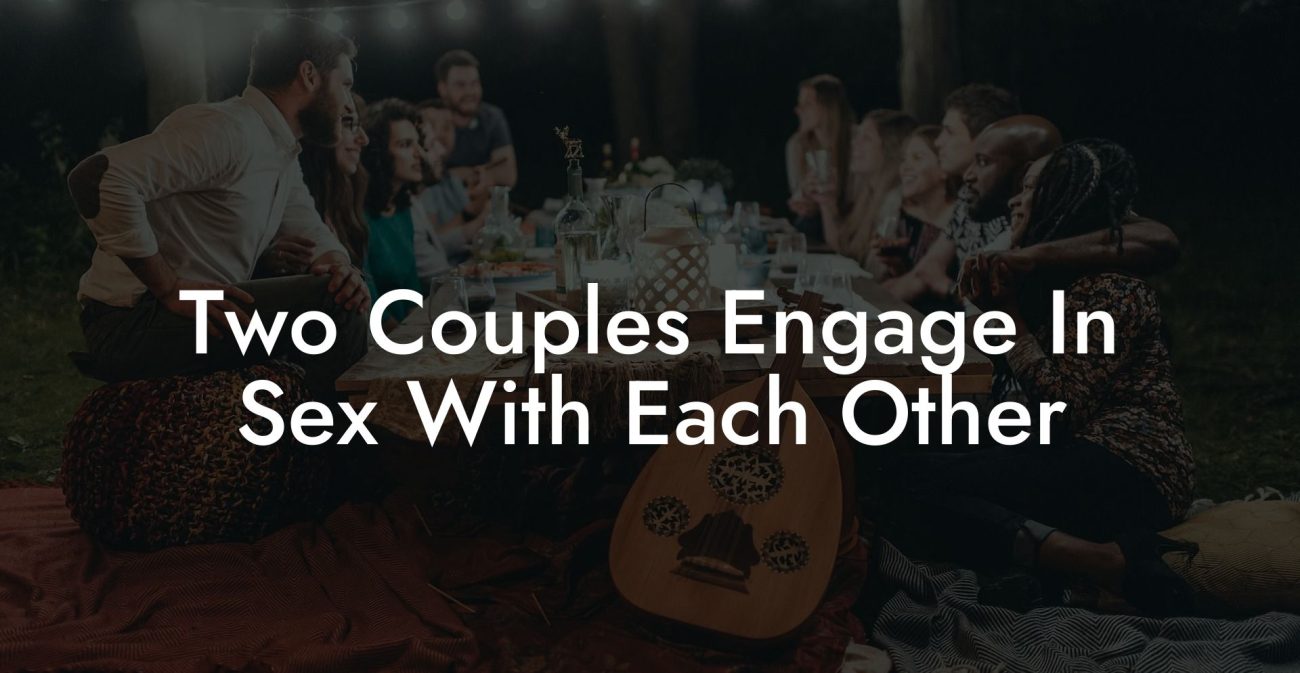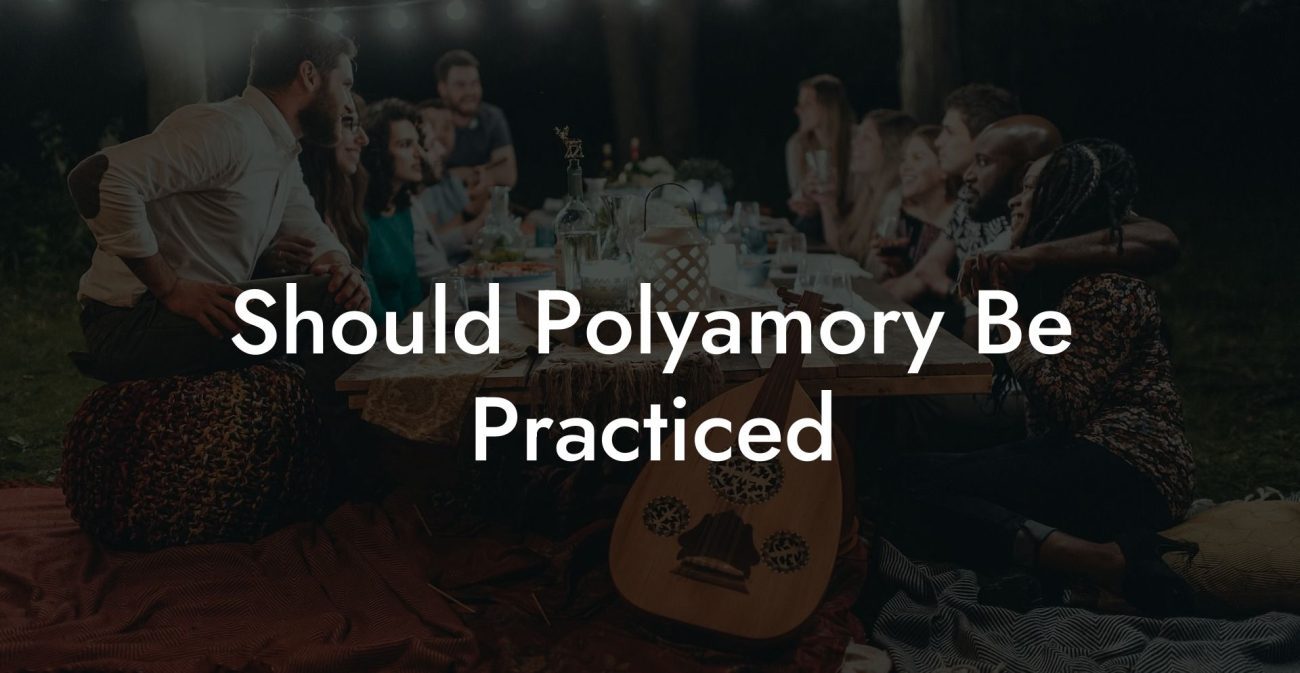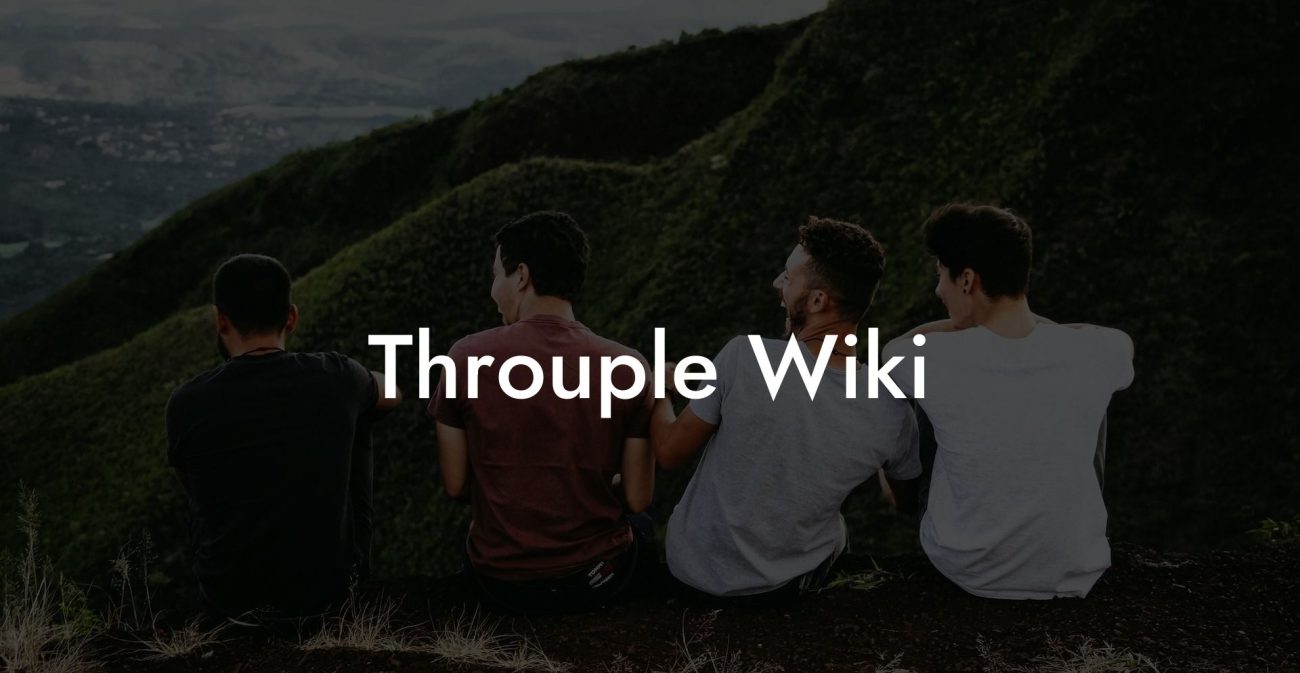What Is It Called When You Are In A Relationship With One Person?

Often referred to as a monogamous or exclusive relationship, this model emphasizes commitment, emotional intimacy, and the cultivation of a deep, focused bond between two individuals. In this guide, we will explore the definition, history, cultural significance, benefits, and challenges of monogamous relationships. We will also compare monogamy to other relationship models, provide expert advice for maintaining a healthy exclusive relationship, and offer practical tips for navigating modern romantic dynamics.
Have you ever wondered if monogamy is just a stupid little experiment? Open relationships, polyamory, relationship anarchy...find out which relationship dynamic suits you best with our one minute relationship test. See if you are just conforming to "societal norms". Reveal your truth >>
Quick Links to Useful Sections
- The Meaning of Being in a Relationship With One Person
- What Is Monogamy?
- Definition and Core Principles
- Etymology and Origins
- Historical and Cultural Context of Monogamy
- Historical Development
- Cultural Perspectives and Modern Trends
- Benefits of Being in a Relationship With One Person
- Deep Emotional Connection
- Stability and Security
- Simplicity in Communication
- Legal and Social Recognition
- Focus on Shared Goals
- Challenges of Monogamous Relationships
- Potential for Complacency
- Managing Expectations and Personal Growth
- External Influences and Social Pressure
- Expert Tips for Nurturing a Healthy Single Partner Relationship
- Maintain Open Communication
- Invest in Shared Experiences
- Prioritize Self-Care and Personal Growth
- Seek Professional Support When Needed
- Frequently Asked Questions (FAQ)
The Meaning of Being in a Relationship With One Person
When you are in a relationship with one person, you are engaging in what is commonly known as a monogamous relationship. monogamy has long been considered the traditional norm in many societies, forming the basis of exclusive partnerships that prioritize deep emotional connection and long-term commitment. Despite the increasing visibility of alternative relationship models, such as polyamory and open relationships, monogamy continues to be celebrated for its focus on mutual trust, stability, and a singular, profound bond.
This guide aims to provide a detailed understanding of what it means to be in a relationship with one person, addressing key aspects such as the definition of monogamy, its historical and cultural context, and the benefits and challenges that come with an exclusive commitment. Whether you are simply curious about the concept or looking to strengthen your own monogamous relationship, this article offers valuable insights and practical strategies.
What Is Monogamy?
Definition and Core Principles
Monogamy is the practice of forming a romantic or sexual relationship with only one partner at a time. In a monogamous relationship, both partners agree to be exclusively committed to each other, sharing their emotional, romantic, and often sexual lives without seeking external connections. The term "monogamy" originates from the Greek words "monos," meaning "single" or "alone," and "gamos," meaning "marriage," which together imply a union between two individuals.
The core principles of monogamy include:
- Exclusivity: Both partners commit to an exclusive bond, meaning that all emotional and romantic intimacy is reserved for one another.
- Long-Term Commitment: Monogamous relationships often involve a promise of lifelong or long-term dedication, supported by shared goals and mutual trust.
- Mutual Trust and Respect: Trust is the foundation of a monogamous relationship, built on honest communication and mutual respect.
- Emotional Intimacy: The focus on one partner allows for a deep, concentrated emotional connection that fosters stability and security.
Etymology and Origins
The word "monogamy" is derived from the Greek "monos" (meaning "alone" or "single") and "gamos" (meaning "marriage"). Historically, monogamy has been the predominant relationship model in many cultures and religions. Over time, this practice became institutionalized through legal and social frameworks, reinforcing the idea of an exclusive bond between two individuals.
Although alternative relationship models have gained visibility in recent decades, monogamy remains deeply ingrained in many societal structures, serving as the foundation for traditional marriage, family units, and social stability.
Historical and Cultural Context of Monogamy
Historical Development
Monogamy has been practiced throughout history as a means to solidify social alliances, ensure economic stability, and maintain clear lines of inheritance. In many ancient civilizations, monogamous unions were idealized as the cornerstone of family life, with cultural and religious institutions reinforcing exclusive partnerships.
Over time, monogamy became the dominant marital model in Western societies, influenced by religious teachings—particularly Christianity—and later codified in legal systems. This historical evolution has shaped modern societal expectations regarding commitment, fidelity, and the roles of partners within a relationship.
Cultural Perspectives and Modern Trends
Today, monogamy is widely accepted and legally supported in most parts of the world. It is often viewed as a symbol of commitment and stability. However, modern cultural shifts have led to a broader discussion about the meaning of exclusivity. Many people now explore monogamy in new ways, incorporating elements of personal growth, individual autonomy, and evolving gender roles.
For younger generations, including Millennials and Gen-Z, the traditional model of monogamy is being reexamined in the context of modern values such as self-expression and equality. While some choose to remain exclusively monogamous, others may practice "serial monogamy," where they form one exclusive relationship after another over time.
Benefits of Being in a Relationship With One Person
Deep Emotional Connection
One of the primary benefits of a monogamous, single partner relationship is the opportunity to develop a profound emotional bond. With all your emotional energy focused on one person, you can build a strong foundation of trust and intimacy that can provide comfort and stability in both good times and challenging moments.
Stability and Security
Exclusive relationships often offer greater emotional and financial stability. The clarity and commitment inherent in monogamy can lead to a sense of security that supports long-term planning, shared responsibilities, and joint decision-making.
Simplicity in Communication
With only one partner involved, communication channels tend to be more straightforward. This simplicity helps reduce misunderstandings and makes it easier to resolve conflicts, ultimately contributing to a healthier and more sustainable relationship.
Legal and Social Recognition
Monogamous relationships, especially those formalized through marriage, are widely recognized and supported by legal frameworks. This recognition provides benefits such as tax advantages, inheritance rights, and spousal benefits, as well as social acceptance and validation.
Focus on Shared Goals
Being in a relationship with one person allows couples to concentrate on building a shared life together. This focus can lead to better alignment on long-term goals, such as career planning, financial management, and family building, resulting in a more integrated and unified partnership.
Challenges of Monogamous Relationships
Potential for Complacency
One challenge in long-term monogamous relationships is the risk of complacency. Over time, couples may fall into predictable routines, which can lead to a sense of stagnation or a decline in passion.
Advice: Regularly invest in activities that spark novelty and excitement, such as date nights, shared hobbies, and new experiences that help keep the relationship vibrant.
Managing Expectations and Personal Growth
As individuals grow and change, their needs and desires may evolve. In a single partner relationship, it’s important to ensure that both partners continue to support each other’s personal development while adapting to new challenges.
Advice: Engage in honest discussions about your future aspirations, and consider periodic relationship reviews to adjust expectations and align your goals.
External Influences and Social Pressure
Even in a committed, monogamous relationship, external factors such as media portrayals, peer comparisons, and societal expectations can influence how you perceive your relationship. These pressures may sometimes lead to doubts or unrealistic comparisons.
Advice: Focus on your unique relationship dynamic and work together to build a shared narrative that reflects your values and experiences rather than external ideals.
Expert Tips for Nurturing a Healthy Single Partner Relationship
Maintain Open Communication
Consistent, honest communication is key to a strong relationship. Set aside regular time for meaningful conversations with your partner to discuss your feelings, address any concerns, and share your dreams for the future.
- Active Listening: Practice listening without interrupting and validate each other’s emotions.
- Use “I” Statements: Express your thoughts in a way that focuses on your personal experience to foster a non-confrontational dialogue.
Invest in Shared Experiences
Cultivating a deep bond involves spending quality time together. Whether it’s exploring new hobbies, traveling, or simply having regular date nights, shared experiences can strengthen your emotional connection and create lasting memories.
- Plan Regular Outings: Schedule weekly or monthly dates to keep the relationship exciting.
- Explore New Activities: Try new experiences together to continually challenge and inspire each other.
Prioritize Self-Care and Personal Growth
A healthy relationship is built on the well-being of both partners. Make self-care a priority by engaging in activities that promote your physical, emotional, and mental health.
- Regular Exercise: Maintain a routine that keeps you active and energized.
- Mindfulness and Relaxation: Practice meditation, journaling, or other mindfulness activities to manage stress.
- Personal Hobbies: Pursue interests that allow you to grow individually, which in turn enriches your shared life.
Seek Professional Support When Needed
If you encounter persistent challenges or communication difficulties, consider seeking the guidance of a therapist or counselor. Professional support can provide tools for conflict resolution, help you navigate evolving needs, and strengthen your bond.
- Couples Therapy: Even in healthy relationships, couples therapy can be a proactive way to ensure continuous growth and understanding.
- Individual Counseling: Personal therapy can help address individual challenges that may affect your relationship.
Frequently Asked Questions (FAQ)
1. What is a single partner relationship?
A single partner relationship is a committed, exclusive bond between two individuals, where emotional, romantic, and sexual intimacy is shared solely between them.
2. How does monogamy differ from serial monogamy?
Monogamy involves a continuous, long-term commitment to one partner, while serial monogamy refers to a series of exclusive relationships over time.
3. What are the main benefits of a single partner relationship?
Benefits include deep emotional intimacy, focused communication, legal and social recognition, and the opportunity to build a shared life with clear, mutual goals.
4. What challenges might arise in a long-term single partner relationship?
Challenges can include the risk of complacency, evolving personal needs, and external pressures or comparisons that may influence how you perceive your relationship.
5. How can couples maintain a healthy single partner relationship?
Couples can maintain a healthy relationship by prioritizing open communication, investing in shared experiences, supporting individual growth, and seeking professional guidance when necessary.
6. Where can I find additional resources on single partner relationships?
Additional resources include books such as "The Ethical Slut" by Dossie Easton & Janet Hardy and "More Than Two" by Franklin Veaux & Eve Rickert, podcasts like "Multiamory" and "Polyamory Weekly," and online communities that discuss relationship dynamics.
Resources and Community Support: Your Next Steps
- "The Ethical Slut" by Dossie Easton & Janet Hardy – A foundational text exploring various relationship models and offering insights into building healthy, fulfilling single partner relationships.
- "More Than Two" by Franklin Veaux & Eve Rickert – An in-depth guide with practical advice on nurturing deep, exclusive bonds and navigating relationship challenges.
- Podcasts: Listen to "Multiamory" and "Polyamory Weekly" for engaging discussions and real-life experiences about maintaining exclusive relationships.
- Online Communities: Join forums or social media groups where topics on monogamy and relationship dynamics are discussed.
- Workshops and Webinars: Attend events on relationship psychology and communication to further your understanding and strengthen your connection.
By exploring these resources and applying the practical strategies outlined in this guide, you can develop a clear, informed understanding of what it means to be in a single partner relationship and learn how to cultivate a bond that is both secure and deeply fulfilling. Embrace continuous learning, open dialogue, and mutual growth as you build a relationship that truly reflects your values and aspirations.
Lost & confused by all of the terms, types and seemingly made up 3 letter acronyms?? We've got you. Check out our Ethnical Non-Monogamy Dictionary >>
Useful Interruption: Not sure which relationship vibe fits you best? Take our Relationship Test, it’ll give you the real insight into your natural relationship style. Then, dive into our binge-worthy guides (from the tried-and-true to the “wait, that’s a thing?”) and find the perfect relationship type for your life:
- Monogamy
- Open Relationships
- Ethical Non-Monogamy
- Solo Polyamory
- Non-Hierarchical Polyamory
- Hierarchical Polyamory
- Relationship Anarchy
- Swinging
Now back to the main article but yeah take the test...



